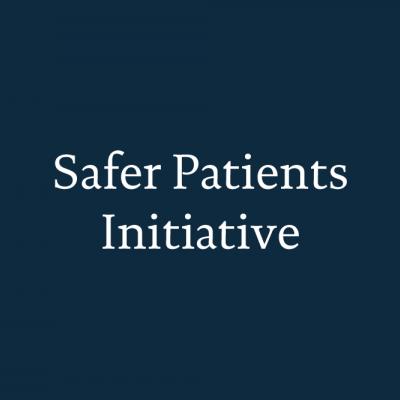Safer Patients Initiative The Safer Patients Initiative aimed to create a culture where staff recognise the potential for error, challenge unreliable processes or unsafe care, and feel able to suggest and make improvements

- Set up to test practical ways of improving hospital safety and to demonstrate what can be achieved through an organisation-wide approach to safety.
- Ran from 2004 to 2008.
- Encompassed two phases and 24 hospitals took part.
Ensuring safety and reliable care in the NHS is a massive challenge. While the majority of people are treated without incident, it is estimated that one in 10 people admitted to hospital in the UK will experience some sort of harm.
In nearly every case, the problem is caused by unreliable health care systems and processes.
Aims
The Safer Patients Initiative was the first major improvement programme to start addressing the issue of patient safety in the UK.
It was complex and large-scale in its approach to improvement, recognising that change needs to take place across whole organisations and systems, rather than focusing on individual incidents.
It aimed to create a culture where staff recognise the potential for error, challenge unreliable processes or unsafe care, and feel able to suggest and make improvements.
Programme details
The initiative was designed with input from the Institute for Healthcare Improvement and focused on improving the reliability of specific processes of care within four designated clinical areas:
- general ward care
- critical care
- peri-operative care
- medicines management.
In the first phase, four UK hospitals undertook improvement in leadership in the four clinical areas using a predefined measurement framework. They were given the ambitious goal of halving the number of adverse events over two years.
Phase 2 saw 20 more hospitals join, working in pairs to learn from each others' successes and challenges. These trust had two aims: a 30% reduction in adverse events and a 15% reduction in mortality over 20 months.
Learning
The initiative generated considerable learning. In particular, that a wider set of methods and approaches are needed to impact on patient safety at an organisational level.
It also highlighted the scale of the resources needed to make organisation-wide change, the need to make changes at every level of the system, and the time needed to deliver and embed improvements.
Work with us
We look for talented and passionate individuals as everyone at the Health Foundation has an important role to play.
View current vacanciesThe Q community
Q is an initiative connecting people with improvement expertise across the UK.
Find out more

